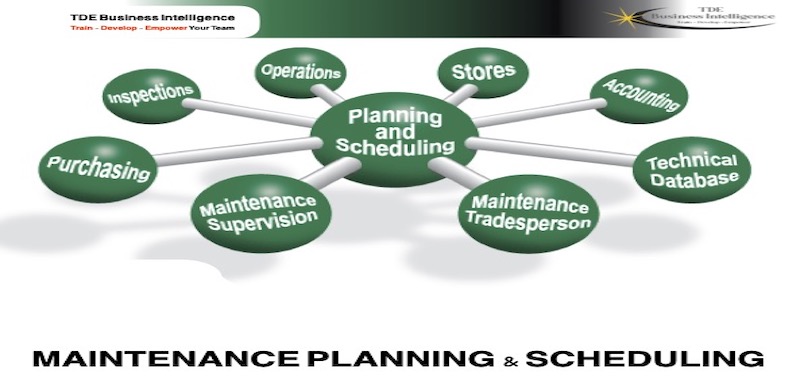
SCHEDULE
| Dates | Venue | Category |
| 12-16 March 2023 | Dubai – United Arab Emirates | Maintenance-Technical |
| 5-9 June 2023 | Port Moresby – Papua New Guinea | Maintenance-Technical |
| 12-16 June 2023 | Kuala Lumpur – Malaysia | Maintenance-Technical |
INTRODUCTION
The maintenance of physical assets can no longer be treated just as a ‘maintenance problem’. The competitive environment in which business operates requires an approach that integrates the operational objectives of the business and the life-cycle objectives of the physical assets.
Our highly interactive Maintenance Planning, Scheduling and Work Control training course is designed to provide management and staff with essential maintenance management skills, gain a clear understanding of their roles, and work more effectively within a team environment.
BENEFITS OF ATTENDING
Upon the completion of this training, participants will be able to:
- Understand maintenance as a key business function
- Understand the objectives and purpose of pro-active failure management
- Learn how reliability influences not only plant output, but also improves health, safety and environmental performance, resource optimisation and cost improvement
- Identify planning and scheduling best practices and how these will contribute to work quality and reliability improvement
- Create and preserve forward work and use it for planning and scheduling resources
- Use suitable performance indicators and management reports to perform regular analysis of maintenance performance, control maintenance resources and costs, and drive continuous improvement
WHO SHOULD ATTEND?
- Maintenance Managers & Supervisors
- Personnel designated as planners, or identified to become planners
- Predictive Maintenance Technicians & Supervisors
- Key Leaders from each Maintenance craft
- Maintenance & Reliability Engineers
- Materials Management Managers / Supervisors
- CMMS Key Users
COURSE OUTLINE
Session 1: MODERN MAINTENANCE MANAGEMENT PRACTICE IN PERSPECTIVE
- Maintenance in the Business Process
- What does it looks like
- What it could look like
- Evolution in Maintenance Management
- Reactive vs. Proactive Maintenance
- World-Class Maintenance Management
Session 2: MAINTENANCE POLICIES AND LOGISTICS PLANNING
- Equipment Classification and Identification
- Document Identification and Classification
- Maintenance Management Policies
- Maintenance Work Prioritisation
- Maintenance Logistics Planning
Session 3: FAILURE MANAGEMENT PROGRAMME DEVELOPMENT
- Failure Modes, Effects and Consequences (FMEA)
- Failure Management Policies
- Application of RCM in the Development of Failure Management Policies
- Implementing Failure Management Policies
- Corrective Maintenance Planning
- Logistic Requirements Planning
Session 4: WORK SCHEDULING AND CONTROL
- Development of Weekly Master Schedule
- Determine Resource Availability
- Determine Equipment Outage Requirement
- Management of the Forward Workload (Backlog)
- Weekly Master Schedule Implementation
Session 5: PERFORMANCE MEASUREMENT, MANAGEMENT REPORTING AND ANALYSIS
- Information and Control
- Management Levels and Information
- Performance Indicators
- Workload Performance Indicators
- Planning Performance Indicators
- Effectiveness Performance Indicators
- Cost Performance Indicators
- Management Reports
